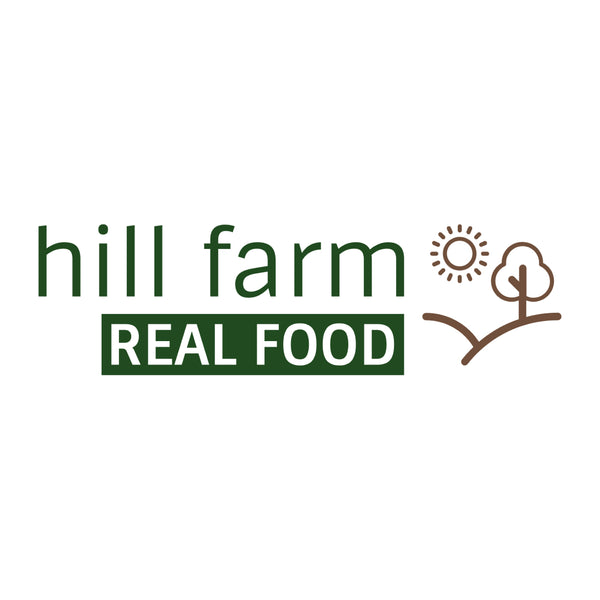Our story

We are the Aidley family. We love food, and we love farming.
Our story at Hill Farm began in 1938 when Tim's grandfather started farming here. Currently full time on the farm are Tim and Elaine Aidley and their sons Matt, Ben & Dan.
Dairy has traditionally been the main enterprise on the farm, and our milk was mostly sold into the commodity market, but for a long time we have sold meat and eggs locally to friends and family. We have always run a natural grass based system and became increasingly aware of the importance of regenerative systems of animal and land management, and their influence on ecosystem health and human health.
We always felt that the food we were producing was too good really for the commodity food chain. So, encouraged by strong demand for properly produced food from increasingly aware consumers, in early 2020 we decided to 'go for it' and set up HILL FARM REAL FOOD so we can share all the tasty benefits of our farm with you!
We chose the name HILL FARM REAL FOOD because we think it conveys, in a no-nonsense way, what we are trying to do.
We strive to produce naturally healthy food with nutritional integrity, nothing added in and nothing taken out. And we produce it in a way that works with nature as much as possible, restores our environment and builds soil.
Modern science is confirming time and time again the age-old knowledge that good soil management is so important, nourishing the vast crowd of tiny and microscopic creatures beneath our feet - the soil microbiome. In tandem with this, it's becoming well known that our own health is massively influenced by the human microbiome - particularly in the gut. We believe the health of soils, plants, animals and humans are closely linked and REAL FOOD is the key.
Please bear in mind that some of our products are not available year-round - because we work with the seasons.
Our farm is fully organic and all our livestock are managed to organic standards. We actually go above and beyond what the organic standards permit, for example we carry out no routine cultivation or cropping, our calves are reared by suckling naturally, and we have a strict zero-antibiotic and zero-medication policy with all our animals.
Our farming is influenced by holistic management principles and farm scale permaculture. Our vision is for the farm to become a multi-level perennial polyculture, meaning diverse pastures interspersed with trees, hedges, woodland and ponds.
Grass pasture is our main crop. Grazing animals - correctly managed - are essential from an environmental point of view (building soils, sequestering carbon and restoring the hydrological cycle) as well as producing high quality food for human nourishment.
